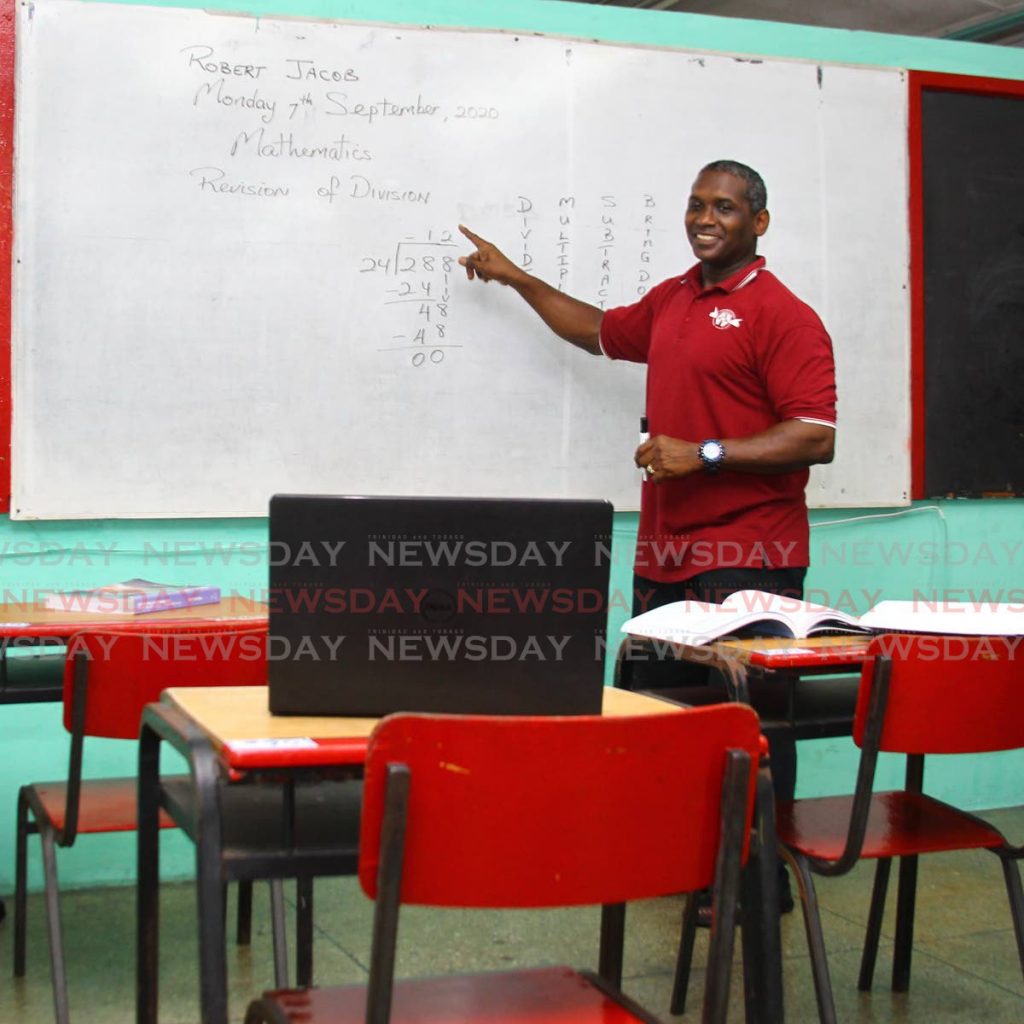Psychiatrist: Teachers under tremendous stress

Staring down the barrel of a gun held in the schoolyard by a bandit, worrying about miscarriages caused by bad roads, intimidation by parents of dysfunctional children, “bad principals” and unsupportive colleagues – these are just some of the situations that may affect the mental well-being of teachers.
In painting a scenario of challenges teachers faced before the covid19 pandemic, psychiatrist Dr Varma Deyalsingh urged teachers who may be encountering any kind of mental challenges to seek help.
“One of the common emotional problems seen in our teachers is depression,” Deyalsingh said as he addressed the Presbyterian Primary Schools Board of Education Teachers conference last Friday
Deyalsingh, who is also an independent senator, said because of the critical role teachers play, “society needs emotionally healthy teachers to give us emotional healthy children who would in turn give us an emotional healthy nation.
“If a child is physically, emotionally and verbally abused by a teacher, that child can be an emotionally unstable adult, and those adults make up society,” he said as he credited his own first teacher, Cecilia Harnanand, for the person he has become.
“To save our nation we need more dedicated teachers. Therefore, you must have teachers who are well paid and appreciated.”
He said teachers have the ability to recognise problematic children, nurture, educate and help socialise them, while social workers can find and work with individuals who fall through the system.
Deyalsingh spoke of the trauma teachers faced before the advent of covid19 and the new challenges it has created.
“The pandemic has brought about a lot of different anxiety problems among the population. We have depression. People are trapped at home.
“People have turned to alcohol and drug abuse and violence to cope with stresses from economic and relationship problems.
“The stress you have as a teacher is not just what happens in school, but what happens in your homes can affect you in school.
“Statistics show one in four persons will suffer from mental illness. The stresses of life and work and how you cope contributes to the mental state of the teacher.”
He referred to a study a study done by UTT Prof Mala Ramdass and others which listed four main areas of the new challenges, including teacher workload, student behaviour, leadership/management and employment conditions.
He noted changes in the curriculum, inadequate time to prepare for online classes, resulting in exhaustion and eye strain, while balancing online classes for their own children, juggling home and school responsibilities is difficult because teachers are accountable for students' achievements.
He said some teachers who have to return to school have also developed “PH phobia,” having to travel in private cars for fear of being exposed to the virus.
Deyalsingh also spoke of a new phenomenon developing in teachers called secondary traumatic stress caused by their inability to help some of their students who are victims of abuse.
“You are there listening to a child you know is being abused in whatever manner. Overwhelmed that you cannot help this child, you take on the stress.
“In TT this thing is increasing, because you find abuse of children is a major problem.”
He said it is also challenging for teachers to have to bring to one level a class of 30-odd students some of whom may have learning disabilities or problems at home.
“So teachers are undergoing a great deal of stress and we must now be able to recognise that stress, if not handled properly, could trigger an unhealthy mind. Worrying over something can cause lack of sleep, and poor sleep hygiene can also trigger mental illness.
"Some persons may have a genetic predisposition to certain mental disorders so if you have depression, bipolar disorder in your family, be extra careful and seek help.”


Comments
"Psychiatrist: Teachers under tremendous stress"